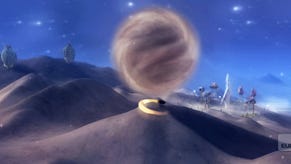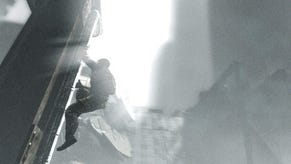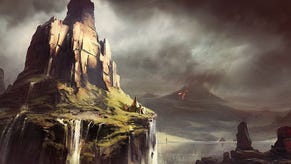From Dust
Elementary.
Equally, your own movements influence the entire simulation, and it's easy to be caught in strange little feedback loops as you scoop up mud to form a bridge only to discover that the mud you've used was actually holding back another body of water.
While the environment grows more elaborate, the basic toolset remains fairly constant. Don't worry, you'll unlock crazy new God skills like the ability to jellify water as the game progresses, but the simple power to grab and drop stuff remains surprisingly satisfying and thought-provoking over long periods of time.
With a 360 controller in your hands, it takes seconds to get used to – the stick controls your roving cursor, while the left trigger gathers up any substance you're currently hovering over and the right trigger dumps it – and such a simple interaction encourages you to really experiment with the materials at your disposal, yanking up huge dust clouds and then watching how they sag into slowly collapsing hills when you deposit them elsewhere, or pulling together angry red donuts of lava and then dropping them on foliage to see it erupt into flames.
Almost all puzzles have multiple solutions – if you're fending off lava, you can force ocean waves over it to turn it to stone, move sand around to direct its flow, or even cover it with magical jelly water in a manner that would make some Ph.D in a tweed coat over at the Open University choke on the end of their Biro – and because it's a genuine simulation, these solutions don't feel forced or overly prescribed.
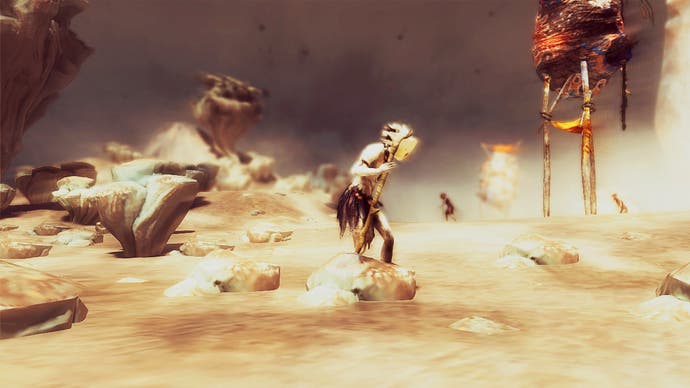
The simulation aspects might be the most fascinating part of this entire project, in fact, as Chahi's team creates a convincing environment built of fire, wind, earth and water, all constantly fighting for some kind of balance, and endlessly trapped within the same intriguing cycles.
Over the course of a level, it's not uncommon to discover that a volcano off to the side of the map has slowly created a new plain of rich black rock as the magma oozes into the ocean, for example, while I lost a couple of minutes just dumping sand into a shallow river and watching the way that little deltas and rivulets emerged and washed away again.
This is nature at double-speed, for sure, as channels forge canyons and volcanoes erupt and slip back into dormancy in a matter of seconds, but it's perfectly tweaked for messing around with, and once the campaign has been finished, Chahi's still left you with a wonderful digital fish tank to peer into.
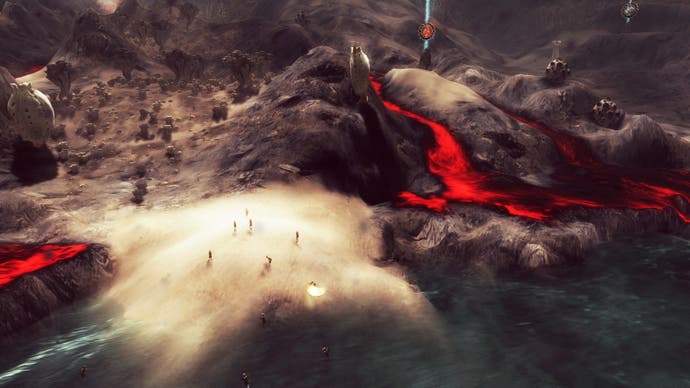
As for the campaign itself, From Dust is shaping up to be a God game that feels uncommonly religious - albeit in an indistinct, cross-cultural non-denominational kind of way. The soundtrack blends rising organ blasts and pensive strings with the sounds of shells being clicked together, while your exit posts for each level resemble everything from Anasazi Kivas to the puttyish spiritual musings of Gaudi.
Fittingly, as with so much else in the game, this reverent tone seems to have emerged organically through the interaction of From Dust's various moving parts.
"It's funny, really, because we didn't want to take it in this direction," laughs Chahi. "There's a level early on in the game where you have to part a sea to get your tribe across, and you're basically playing as Moses. We really didn't want to have this kind of obvious thing in the game, but the game kept pushing us back to it.
"The crazy thing is that the religious aspects of this just emerged."

